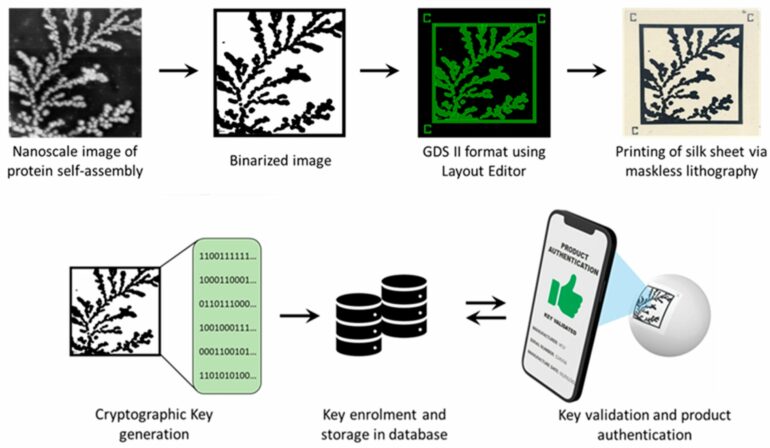Receiving a bogus designer handbag or imitation Wagyu beef might infuriate a Cyber Monday consumer, but a knock-off respirator or a fake pacemaker could imperil them.
Virginia Tech researcher Emma Meno is developing a mobile app to empower buyers to ensure their purchases are legitimate. In a study published in Micromachines earlier this fall, Meno and a team of researchers described their work to date.
“Counterfeiters put things on the market that look like authorized medical devices or they intercept a legitimate transaction,” said Meno, a research associate at the Virginia Tech National Security Institute. “A fake biodevice is a huge health risk, and the growing number of people who are affected by this is worrisome.”
In the days leading up to Cyber Monday last year, law enforcement agencies took down almost 13,000 websites peddling phony luxury goods or pirated content. While there are steep legal ramifications for counterfeiting, they’re only enforceable if someone gets caught.
“Unfortunately, it’s easy for counterfeiters to evade detection: They can simply delete the website and create a new one,” said Meno, who is also a Commonwealth Cyber Initiative researcher supported by the Innovation: Ideation to Commercialization program, which seeks to move research from the lab to the marketplace.
To counter the counterfeiters, Meno and her team are developing a first-of-its-kind verification tool tailored specifically for the end user. First, a seller stamps the item with a special label printed with biodegradable ink. When the purchase arrives, the buyer can use a mobile device to scan the stamp like they would a QR code and receive confirmation that the item received matches what was sent.
Initially, Meno’s team is focusing on lower-risk areas such as luxury goods and working up to applications in the biomedical industries—but sellers in all these areas stand to benefit from this type of end-user product.
“It’s not only about a consumer’s peace of mind,” Meno said. “This is also a concern for industries who lose money or suffer brand defamation every time someone buys a knockoff.”
The app development builds on a collaboration between Virginia Tech researchers and colleagues from Virginia Commonwealth University who developed and tested the biodegradable ink that could be affixed to something like Wagyu beef, the highly sought-after meat costing upward of $200 per pound. The labels act as a non-cloneable “fingerprint,” and the team is currently working on how best to digitize them so they match to a single other key in a database, before being automatically deleted.
“If a user scans a certain label and it doesn’t show up in the database, then it’s likely a counterfeit,” Meno said. “Someone in the middle may have intercepted it.”
The mobile app aims to be able to defend against this type of attack and others as part of a larger effort to secure online transactions and protect businesses in cyberspace.
More information:
Sayantan Pradhan et al, Deep-Learning-Based Digitization of Protein-Self-Assembly to Print Biodegradable Physically Unclonable Labels for Device Security, Micromachines (2023). DOI: 10.3390/mi14091678
Citation:
Are your Cyber Monday purchases legit? There’s (going to be) an app for that (2023, November 24)



